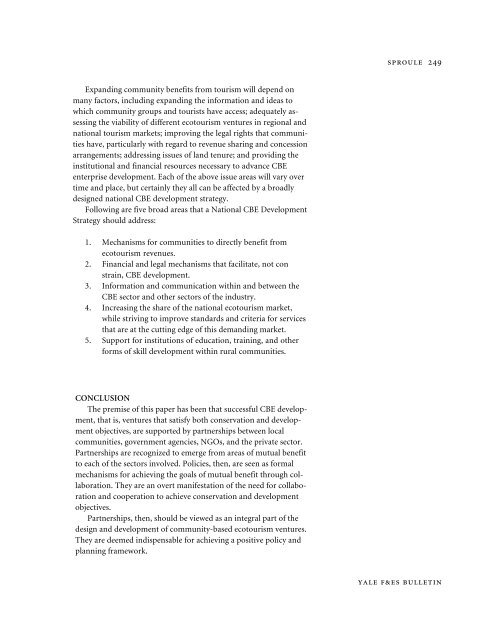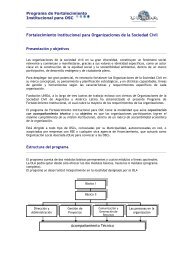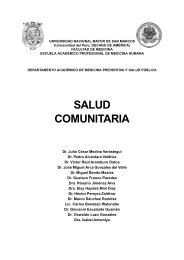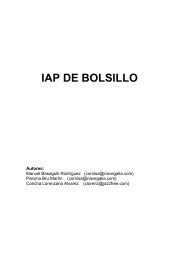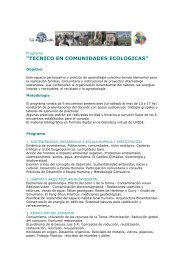Community-Based Ecotourism Development - Yale University
Community-Based Ecotourism Development - Yale University
Community-Based Ecotourism Development - Yale University
You also want an ePaper? Increase the reach of your titles
YUMPU automatically turns print PDFs into web optimized ePapers that Google loves.
SPROULE 249<br />
Expanding community benefits from tourism will depend on<br />
many factors, including expanding the information and ideas to<br />
which community groups and tourists have access; adequately assessing<br />
the viability of different ecotourism ventures in regional and<br />
national tourism markets; improving the legal rights that communities<br />
have, particularly with regard to revenue sharing and concession<br />
arrangements; addressing issues of land tenure; and providing the<br />
institutional and financial resources necessary to advance CBE<br />
enterprise development. Each of the above issue areas will vary over<br />
time and place, but certainly they all can be affected by a broadly<br />
designed national CBE development strategy.<br />
Following are five broad areas that a National CBE <strong>Development</strong><br />
Strategy should address:<br />
1. Mechanisms for communities to directly benefit from<br />
ecotourism revenues.<br />
2. Financial and legal mechanisms that facilitate, not con<br />
strain, CBE development.<br />
3. Information and communication within and between the<br />
CBE sector and other sectors of the industry.<br />
4. Increasing the share of the national ecotourism market,<br />
while striving to improve standards and criteria for services<br />
that are at the cutting edge of this demanding market.<br />
5. Support for institutions of education, training, and other<br />
forms of skill development within rural communities.<br />
CONCLUSION<br />
The premise of this paper has been that successful CBE development,<br />
that is, ventures that satisfy both conservation and development<br />
objectives, are supported by partnerships between local<br />
communities, government agencies, NGOs, and the private sector.<br />
Partnerships are recognized to emerge from areas of mutual benefit<br />
to each of the sectors involved. Policies, then, are seen as formal<br />
mechanisms for achieving the goals of mutual benefit through collaboration.<br />
They are an overt manifestation of the need for collaboration<br />
and cooperation to achieve conservation and development<br />
objectives.<br />
Partnerships, then, should be viewed as an integral part of the<br />
design and development of community-based ecotourism ventures.<br />
They are deemed indispensable for achieving a positive policy and<br />
planning framework.<br />
YALE F&ES BULLETIN


